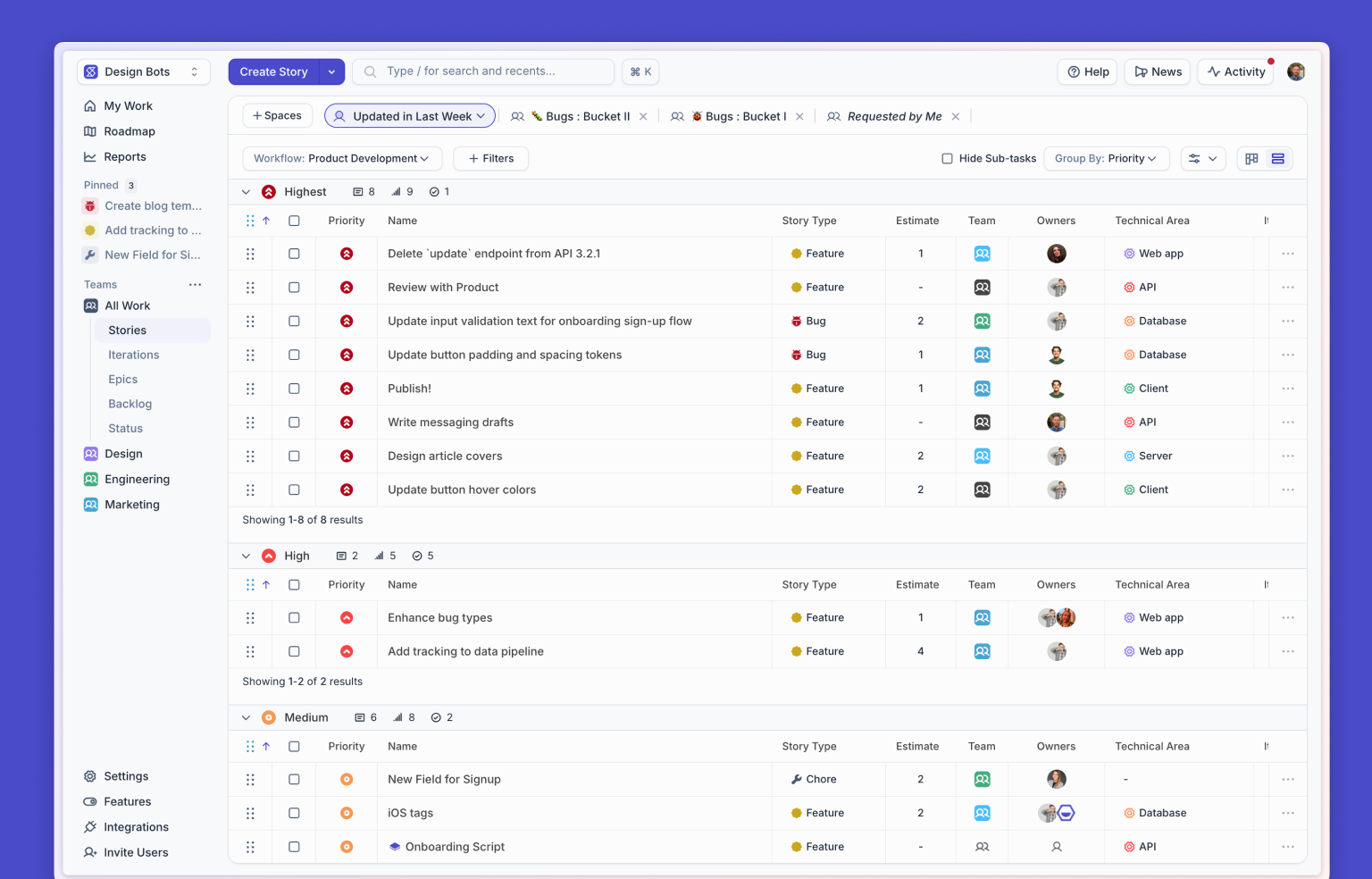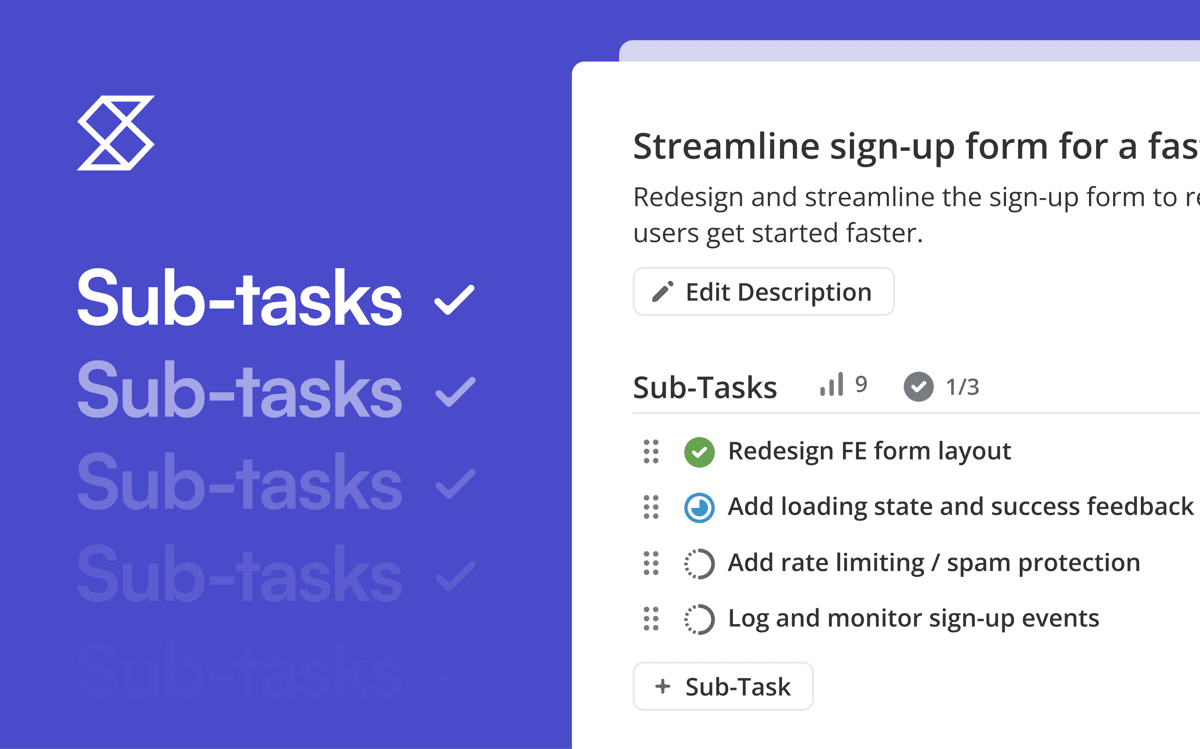When you’re building a product to help growing companies meet and exceed their own customers’ expectations, your product team needs to be able to work together seamlessly, no matter the distance between them.
Megan Berry, VP of Product at Octane AI (a tool to help businesses of any size reach their audience via Facebook Messenger), works hard to instill values of solid communication, valuing feedback and flexibility, and meaningful work in her team — read on to learn how:
Create a Culture of Open Communication
As VP of Product at a growing company, Megan has much to keep track of, decide on, and keep up with (both in the company and with the Facebook Messenger platform). Because of this, she embraces the idea that great ideas can come from anywhere and anyone. She wants her team members to feel empowered to recommend new product ideas and improvements, as well as to speak up if they think something is going off-track.
Asking for (and getting) that input has improved the product over time: “We’ve had amazing product suggestions and tweaks from every team at Octane AI, and that’s super important to us.”
In particular, Megan feels that it’s important that your engineering teams be able to suggest tweaks as they are working on a feature. After all, they’re the closest to the code and interfaces, and they have the most information at hand about what can be added or changed.
Encouraging honest feedback
Part of this culture of open communication involves making sure that everyone knows their suggestions are always welcome and actively seeking those suggestions out.
“A lot of times, people will say they want feedback, but then don’t react well to it. If you want people to feel comfortable talking to you, you have to make sure you can listen to constructive feedback and sincerely thank them for it.”
Megan fosters this attitude by regularly asking employees what they think about a feature or product direction, and being positive and appreciative when they share honestly.
As far as how and when to share ideas and concerns, she has weekly 1:1 meetings with her direct reports where they can both do that. When it comes to other people in the company, she just checks in periodically to make sure they know the line of communication is open.
Sometimes new people who join the organization aren’t used to this kind of open culture, and there’s a period of adjustment. Megan makes sure that this aspect of the culture is covered on all new employee onboarding calls, and she actively schedules 1:1 meetings where she asks new team members to share their candid thoughts.
Ask Questions
One thing Megan wishes she had learned sooner was that it’s okay to say, “I don’t know, what do you think?”
She adds, “It isn’t helpful to pretend to be sure when you aren’t, and people really respect honesty — plus, it leads to better outcomes.” Now, she tries to let all her direct reports know that it’s okay to not have all the answers.
She also feels that it’s important to always talk about the “Why”:
- Why do we think this feature is so important?
- Why do our customers want this feature?
- Why do our customers seek out our product?
Without an answer to these questions, companies can wind up developing software for its own sake rather than to meet the needs of their users. Understanding this, Megan and her team add a “why” to every single Shortcut Story, keeping everyone clear on the reason they’re making that change or implementing that new feature.
Work Remote-First
Octane AI is an all-remote company, which is one of Megan’s favorite things about working there. Being able to work from home helps her be more productive and focused — a common refrain from remote workers.
Her previous company was partially remote, but this is the first time she’s worked at an all-remote company. Having the right tools to do so makes a huge difference. Megan adds:
“Everyone working remotely means that tools like Shortcut are even more important, because we can work asynchronously and stay organized. And we still have plenty of communication in real-time, with Slack and video calls.”
{{testimonial-component}}
Since Octane AI is a tech company and communicates with clients mostly through calls and screenshares, they can easily have a remote team, and they believe their employees are better off for it. This intersects nicely with one of Megan’s core management philosophies around respecting her employees and valuing their lives outside of work.
“Treat people like real people. Value their lives, value what they are passionate about. I always do my best work when I feel respected and inspired.”
For Megan, an introvert, being able to work at home makes a huge difference:
“I know that I focus best at home and that’s where I do my best work. We have other people on the Octane AI team who prefer to find cafes or co-working spots because that’s where they are most productive. The beauty of working remotely is you can choose the work environment that works best for you,” she says in a blog post about working remotely.
“The beauty of working remotely is you can choose the work environment that works best for you.”
She does note that remote workers sometimes need to put a little more effort into team bonding, but having dedicated spaces (whether in Slack or other apps) to discuss non-work topics, check in with each other, and celebrate victories together can go a long way.
If you want to share how you keep your team communicating, we’d love to hear about it on Twitter.










.png)






%20(788%20x%20492%20px)%20(1).png)
.png)

